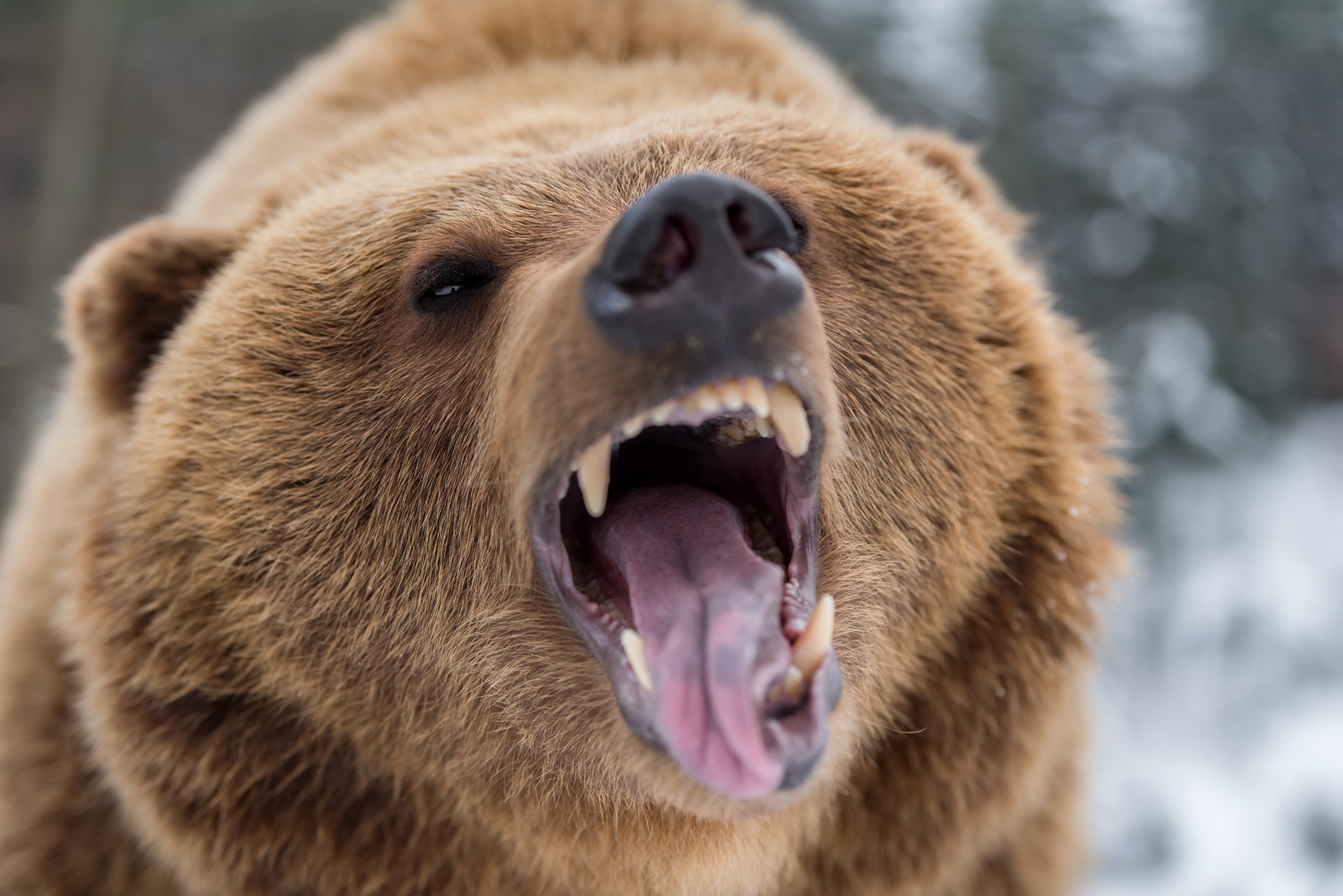
Come summer, millions of vacationers flock to America’s stunning state and national parks. While most outdoor enthusiasts aren’t shy of brushing up against wildlife—after all, that’s part of the fun—close encounters with bears aren’t at the top of most people’s wish lists.
Of course, bear attacks are extremely rare. Most years, you could count on one hand the number of people harmed by a bear in the United States. But people still need to be wary of bears. And for those hiking in areas where bears are present, packing spray is a good idea, says Chris Servheen, an adjunct research associate professor of wildlife conservation at the University of Montana and a former grizzly bear recovery coordinator for the U.S. Fish and Wildlife Service.
“I carry it myself,” Servheen says. “It’s easy to use, and almost 100% effective.”
But not any spray will do. The personal-defense pepper spray some people carry in their cars or purses will not work on a bear, Servheen says. You need bear spray—also known as bear deterrent—which is a product made specifically for bears. Bear spray contains different active ingredients (capsaicin and related capsaicinoids) than pepper spray.
The research confirms that it’s highly effective. A 20-year study, published in the Journal of Wildlife Management, of bear-spray incidents in Alaska found that these sprays stopped a bear’s “undesirable behavior” more than 90% of the time. The few times someone using spray sustained an injury, that injury was minor. Even when wind interfered with the spray’s accuracy, it still reached the bear and helped scare it off, the study shows.
Some of the same researchers conducted a related study on the use of firearms as bear deterrents, and found them to be more or less useless. “If you manage to shoot the bear—and that’s a big if—you may just wound it and make everything worse,” Servheen says. Bear spray, on the other hand, infuses and irritates the mucous membranes in the bear’s eyes and nose. “The bear can’t smell or see, and it’s in pain, so all it wants to do is get out of there,” he says. (The spray wears off after an hour or two, and there is no lasting harm done to the bear, he adds.)
But there are a few important caveats for those heading outdoors armed with bear spray.
For one thing, it won’t do you any good at all if you keep it stowed in your pack, stuffed in your sleeping bag, or stashed anyplace else out of reach. “If you can’t get to it in a matter of seconds, it’s not much use to you,” Servheen says. He recommends wearing it on your belt or pack strap, or keeping it in a pants pocket that’s easily accessible.
Also, bear spray doesn’t work like bug spray; you can’t spritz some of it on your backpack or tent and expect bears to keep their distance. The spray is only effective when discharged into a bear’s face at fairly close range. How close? “Twenty to thirty feet at most,” Servheen says.
Also important: If you buy bear spray, you need to know how to use it. Familiarize yourself with your particular spray can, which will include a safety mechanism and trigger, Servheen says. While both are simple to use, even simple activities can seem difficult if you’re trying to execute them with a four-hundred-pound bear lumbering toward you. He recommends thinking through the motions you’d perform if you had to pull out your bear spray and fire it. “Think about pointing it down at the ground as you spray,” he says. Why? When a bear is coming toward you, its head is likely to be low and close to the ground. Hold the spray up at shoulder level, and your aim may be too high to hit the bear in the face.
Finally, Servheen recommends making noise—clapping or talking—whenever you’re hiking, and especially if you’re walking into the wind, through thick brush, or in other areas where a bear may not see, hear or smell you. Surprising a bear can provoke an aggressive response borne of self-defense, he says. The best way to walk stay out of trouble with bears is to avoid an encounter in the first place.
More Must-Reads from TIME
- Cybersecurity Experts Are Sounding the Alarm on DOGE
- Meet the 2025 Women of the Year
- The Harsh Truth About Disability Inclusion
- Why Do More Young Adults Have Cancer?
- Colman Domingo Leads With Radical Love
- How to Get Better at Doing Things Alone
- Michelle Zauner Stares Down the Darkness
Contact us at letters@time.com